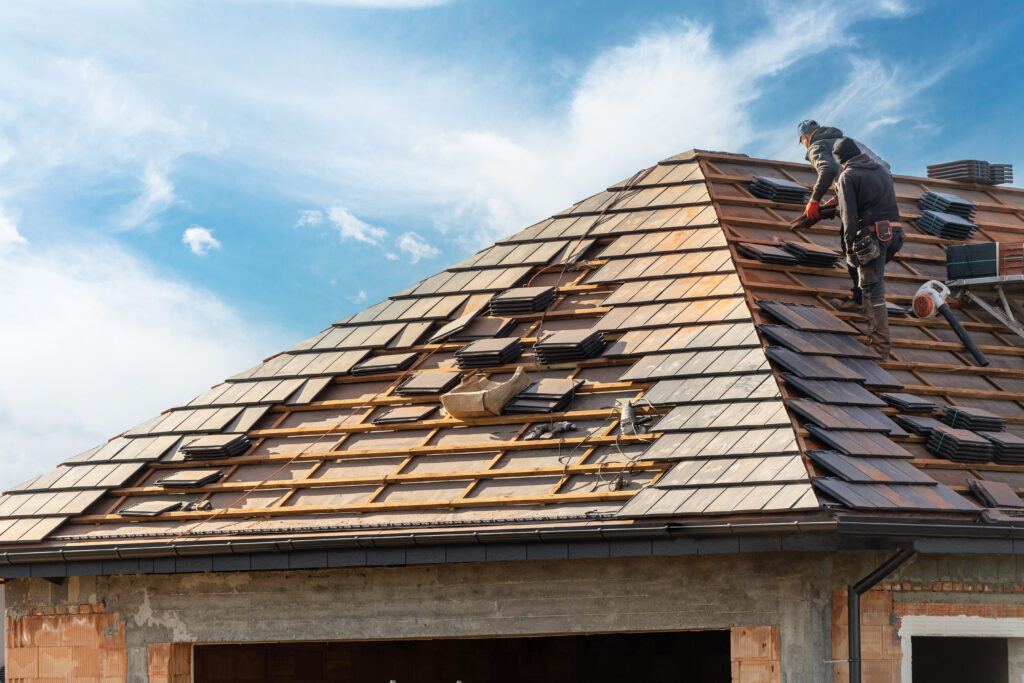Introduction
Owning a home is a significant investment, and one of the most critical components that requires regular attention is the roof. As a homeowner, you’ll eventually face the decision of when to replace your roof. Timing this project can be tricky, as various factors come into play, including weather conditions, contractor availability, and budgetary considerations. In this article, we’ll explore the best seasons for roof replacement and provide you with the insights you need to make an informed decision for your home.
Importance of Roof Replacement
Your roof is the first line of defense against the elements, protecting your home and its contents from the harsh effects of weather. Over time, roofing materials can degrade, leading to leaks, damage, and even structural issues. Neglecting roof maintenance can result in costly repairs and, in some cases, the need for a complete roof replacement.
Replacing your roof is a significant investment, typically costing between $6,000 to $13,000, depending on the size of your home, the roofing materials used, and your location. However, this investment can pay dividends in the long run, as a well-maintained roof can last for decades and improve the overall energy efficiency of your home.
Factors to Consider When Choosing the Best Season
When it comes to roof replacement, the timing of the project can have a significant impact on the overall process and outcome. Let’s explore the key factors to consider when determining the optimal season for your roof replacement:
Weather Conditions
The weather is arguably the most critical factor in determining the best time of year for a roof replacement. Extreme temperatures, precipitation, and other weather events can all impact the installation process and the durability of the new roofing materials.
Winter
While winter may seem like an unlikely time for a roof replacement, it can actually be a viable option in some regions. The cooler temperatures can be advantageous, as they can prevent the roofing materials from becoming too soft and pliable, making them easier to work with. However, the potential for snow, ice, and freezing temperatures can also pose significant challenges, potentially delaying the project or causing damage to the new roofing materials.
Spring
Spring is often considered the second-best season for roof replacement, as the weather is generally milder and more stable than in the winter. The cooler temperatures and lower humidity levels can create favorable conditions for the installation process, allowing for a more efficient and effective project. However, the potential for rainy weather during the spring months can also present some challenges, potentially causing delays and requiring additional precautions to protect the new roofing materials.
Summer
Summer is a popular choice for roof replacement, as the warm, dry weather can be ideal for the installation process. The heat can help activate the adhesive properties of the roofing materials, ensuring a secure and durable installation. However, the intense heat and humidity of the summer months can also create challenges, as the roofing materials may become more susceptible to damage and the workers may require more frequent breaks to avoid heat-related illnesses.
Fall
Many experts consider fall to be the best season for roof replacement. The mild temperatures and consistent weather patterns during this time of year can create the ideal conditions for a successful and efficient project. The cooler temperatures can also help the roofing materials to seal and adhere properly, ensuring a long-lasting and weather-resistant roof. However, the high demand for roofing services during the fall can make it more challenging to secure a spot on a contractor’s schedule.
Contractor Availability
The availability of qualified roofing contractors can also play a significant role in determining the best time of year for your roof replacement. During the peak seasons, such as spring and fall, roofing companies may be inundated with requests, making it more challenging to schedule your project in a timely manner. Conversely, the slower seasons, like winter, may offer more flexibility and potentially lower prices, as contractors are eager to keep their crews busy.
Budget Considerations
The cost of a roof replacement can vary depending on the time of year you choose to undertake the project. During the peak seasons, when demand is high, roofing contractors may charge a premium for their services. In contrast, the slower seasons, such as winter, may offer more competitive pricing as contractors aim to keep their crews working and maintain a steady flow of business.
Comparing Seasonal Pros and Cons
To help you make an informed decision, let’s take a closer look at the pros and cons of each season for roof replacement:
Winter
Pros:
- Increased contractor availability and potentially lower prices
- Cooler temperatures can make the roofing materials more manageable
Cons:
- Potential for snow, ice, and freezing temperatures, which can delay the project or cause damage to the new roofing materials
- Shingles may become less flexible, making them more difficult to install
Spring
Pros:
- Mild weather conditions that are generally favorable for roof replacement
- Lower humidity levels can create a more efficient installation process
Cons:
- Increased likelihood of rain, which can cause delays and require additional precautions
- Contractors may be in higher demand, leading to scheduling challenges and potentially higher prices
Summer
Pros:
- Warm, dry weather can help activate the adhesive properties of the roofing materials
- Consistent weather patterns can make the installation process more straightforward
Cons:
- Intense heat and humidity can create challenges for workers and potentially damage the roofing materials
- Contractors may be in high demand, making scheduling more difficult and leading to higher prices
Fall
Pros:
- Mild temperatures and consistent weather patterns create ideal conditions for roof replacement
- Cooler temperatures can help the roofing materials seal and adhere properly
- Reduced risk of weather-related delays
Cons:
- High demand for roofing services during this season can make scheduling more challenging
- Prices may be higher due to the increased demand
Choosing the Right Roofing Contractor
Regardless of the season you choose for your roof replacement, selecting the right roofing contractor is crucial to the success of your project. Look for a reputable, experienced contractor who is licensed, insured, and has a track record of delivering high-quality work.
When evaluating potential contractors, consider factors such as their warranty offerings, the materials they use, and their communication style. It’s also a good idea to request references from past clients and to thoroughly review their portfolio of previous projects.
Preparing for Your Roof Replacement
Once you’ve selected the optimal season and a qualified roofing contractor, it’s time to prepare for the roof replacement process. This may involve:
- Clearing the area around your home to provide easy access for the roofing crew
- Protecting your landscaping and outdoor features from potential damage
- Communicating with your contractor to understand the timeline and any necessary preparations
By taking these steps, you can help ensure a smooth and efficient roof replacement project, regardless of the time of year.
Conclusion
Replacing your roof is a significant investment, and timing the project correctly can make a significant difference in the overall process and outcome. By considering factors such as weather conditions, contractor availability, and budgetary constraints, you can determine the best season for your roof replacement and work with a qualified roofing contractor to ensure a successful and long-lasting outcome.
At Great West Ent., we are committed to providing our clients with the highest quality roofing services, no matter the time of year. Contact us today to schedule a consultation and learn more about how we can help you with your roof replacement needs.


